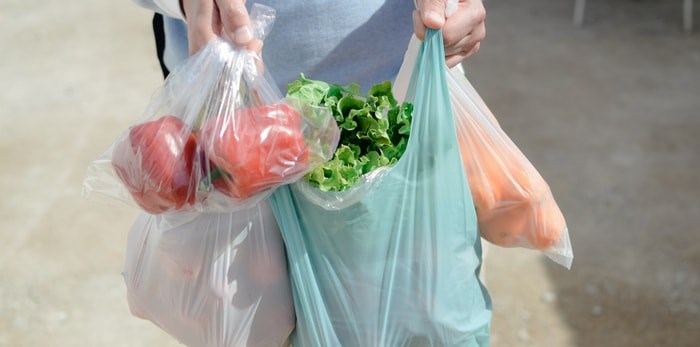What happened: Surrey mayor Doug McCallum wants to ban retailers in his city from providing plastic bags to shoppers at check-outs starting next year – something that would match what the City of Vancouver is doing. The intent is to reduce plastic pollution in oceans and landfills.
Why this matters: Any ban Surrey imposes could be struck down in the Supreme Court of British Columbia, much like one in Victoria, because those cities operate under a different legal framework than does the City of Vancouver, and would need provincial approval. The initiative may, however, nudge the B.C. government to implement a ban provincewide.
McCallum directed staff to draft bylaws so a plastic-bag ban could go into effect on January 1, 2021. If that takes place, his city will join the City of Vancouver, which in November banned retailers from providing carry-out plastic bags starting on January 1, 2021. Plastic bags for fruit in grocery stores will still be allowed.
“I want to encourage Surrey businesses, and some of have already done so, to take the initiative to eliminate single-use plastic shopping bags before the city-wide ban comes into effect on January 1, 2021,” McCallum said in a January 14 release.
Unlike in Vancouver, however, any Surrey ban on retailers providing plastic bags could face legal action for being outside of the city’s jurisdiction.
The City of Victoria in December 2017 passed a bylaw banning retailers from providing plastic bags at check-outs starting July 1, 2018, and it required retailers to charge $0.15 each for paper bags.
The Supreme Court of British Columbia then in July 2019 struck down Victoria’ ban on the grounds that the city needed the approval of B.C.’s environment minister because the matter is provincial jurisdiction.
The City of Vancouver operates under a different legal charter than does Victoria, and city staff told Business in Vancouver that they believe that the Vancouver Charter provides the city the ability to act.
Businesses in Vancouver will be able to provide paper bags at check-outs at a cost of $0.15 each, for up to a year, starting next year. After that, they will have to charge a $0.25-per-bag fee that they will be able to keep as revenue to finance the cost of providing higher-priced paper bags.
Indeed, the City of Vancouver is distinct among the province’s municipalities for having its own charter. Small communities, such as Tofino and Ucluelet, also have plastic bag bans but those bans could be challenged in court, much like Victoria’s one was, and be struck down.
Many businesses in Victoria have continued to provide paper bags for a fee despite not being legally required to do so.
Surrey’s mayor, who has advocated controversial big changes such as creating a city police force and scrapping light-rail, faces a newly formed official opposition as friends have turned into foes. He may have support for his idea to have a plastic bag ban although some supporters of such a ban want restrictions to be mandated by senior governments.
“In early 2019, the Surrey Board of Trade called on the provincial government, and ultimately the federal government, to work in coordination towards a pathway that eliminates single-use plastics,” said Surrey Board of Trade CEO Anita Huberman.
“This is a vital step that all cities need to take in the fight against climate change.”
Some large retailers have acted before they were forced to act.
Whole Foods Market (Nasdaq:WFM) long ago phased out plastic bags, and it provides customers only with paper bags, while Safeway’s owner, Sobeys Inc., plans to phase out plastic bags by the end of January.
The British Columbia Liquor Distribution Branch began phasing out plastic bags on Vancouver Island in November and it plans to extend that to Metro Vancouver in February and the rest of the province in March.
Save-On-Foods president Darrell Jones told BIV last year that he does not foresee a mandated shift to paper bags in Vancouver being a problem as long as there is extensive consultation.
“A lot of concern is that our customers won’t be happy with it, but in terms of us being able to get paper bags, I don’t see that as being an issue,” he said.
“The cost will be much higher, so the customers will have to bear the cost.”
Banning plastic bags also comes with unintended consequences.
University of Sydney economist Rebecca Taylor’s study published last year found that banning carry-out plastic bags in California eliminated 40 million pounds (18 million kilograms) of plastic, but that benefit was partly offset by a 12-million-pound (5.4 million kilograms) increase in plastic garbage bag purchases.
Read more from Business In Vancouver




